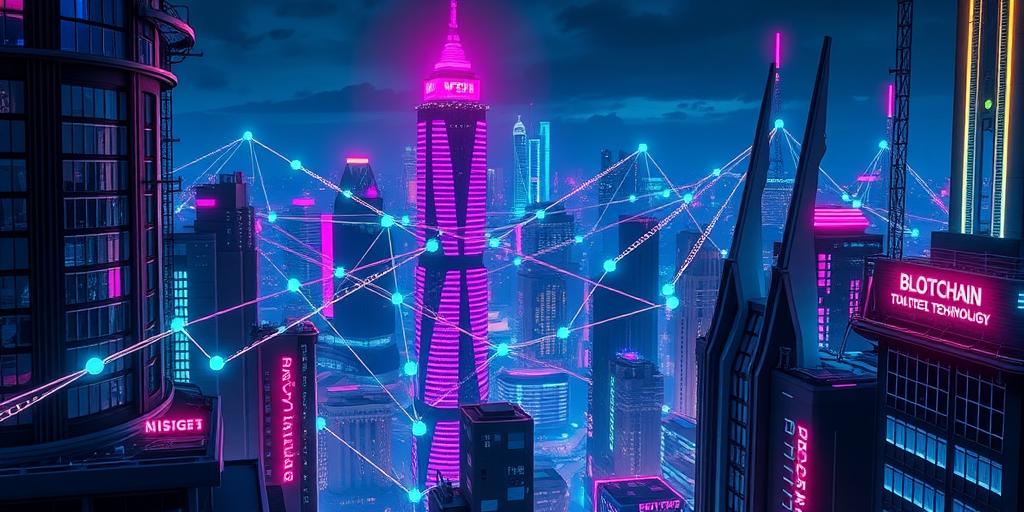Dive into the revolutionary world of smart contracts! These self-executing agreements are transforming industries, and if you’re not already familiar, you’re missing out on a technological goldmine. Prepare to be amazed as we unravel the mysteries of smart contracts, explore their groundbreaking applications, and discover why they’re poised to reshape the future of business and beyond. This isn’t just another tech article; it’s your ticket to understanding one of the most significant advancements in modern computing.
What Exactly are Smart Contracts?
Smart contracts are self-executing contracts with the terms of the agreement between buyer and seller being directly written into lines of code. They’re stored on a blockchain, a decentralized and transparent digital ledger, ensuring security and immutability. This means once a smart contract is deployed, it operates automatically according to its pre-defined rules, without the need for intermediaries or lawyers. Think of it as a digital vending machine: you insert the correct payment (fulfill the contract’s conditions), and you automatically receive your reward (the contract’s outcome).
How Smart Contracts Work: A Simple Analogy
Imagine you’re buying a house. Traditionally, this involves lawyers, escrow agents, and mountains of paperwork. With a smart contract, the entire process could be automated. The contract’s code would verify the buyer’s payment, the seller’s ownership, and automatically transfer ownership once conditions are met. No delays, no disputes – just a smooth, efficient transaction. The possibilities are truly limitless and span numerous industries from real estate to supply chain management and even voting systems.
Beyond the Basics: Key Features of Smart Contracts
Smart contracts offer several advantages over traditional contracts. Their transparency and immutability eliminate the risks of fraud and disputes. Automation speeds up processes and reduces costs. Moreover, their decentralized nature makes them resistant to censorship and single points of failure. This makes them highly secure and reliable for applications needing robust trust and integrity. Understanding these key features will help you grasp their potential for revolutionizing various industries.
The Transformative Power of Smart Contracts Across Industries
Smart contracts are not just a futuristic concept; they’re already impacting various industries today. From streamlining supply chains to revolutionizing the financial sector, their influence is undeniable. The potential impact on businesses seeking more streamlined processes is enormous. Here’s a glimpse into some of their most significant applications:
Supply Chain Management
Tracking goods, managing logistics, and ensuring secure payments – smart contracts make it all possible. Imagine a self-executing contract that automatically triggers payments to suppliers once goods are received and verified, eliminating lengthy payment cycles and improving cash flow. This is the power of automation in supply chain management. The potential for decreased costs and increased efficiency is massive.
Finance and Decentralized Finance (DeFi)
Smart contracts are driving the growth of DeFi, a decentralized financial system built on blockchain technology. They enable the creation of decentralized exchanges (DEXs), lending platforms, and other financial applications, removing the need for traditional intermediaries like banks. This opens doors for financial inclusion and greater transparency in financial transactions. The decentralized nature also offers a higher level of security.
Healthcare
Smart contracts can securely store and manage sensitive patient data while enabling efficient data sharing between healthcare providers. This can streamline healthcare processes and enhance patient privacy. Imagine secure and private medical records accessed by authorized personnel only – this is the promise of smart contracts in the healthcare sector. This also fosters interoperability between systems and streamlines processes for increased efficiency.
Voting Systems
Secure, transparent, and tamper-proof – these are the key benefits smart contracts can bring to voting systems. They can improve the integrity of the voting process while ensuring accountability and preventing fraud. Smart contracts can facilitate accurate and efficient vote counting for larger-scale elections, reducing the potential for human error or manipulation.
The Future of Smart Contracts: What Lies Ahead?
The future of smart contracts is incredibly bright, with ongoing advancements constantly expanding their capabilities and applications. We can anticipate even greater integration into daily life, influencing transactions, and data management, making our interactions smoother and more secure.
Addressing the Challenges: Security and Scalability
While the technology holds immense promise, addressing challenges such as security vulnerabilities and scalability issues remains crucial for widespread adoption. Ensuring the security of smart contracts is paramount. Addressing these challenges through technological improvements and robust testing processes will determine their effectiveness and continued growth.
Interoperability and Standardization
The development of industry standards and protocols will be vital for enabling seamless interoperability between different blockchain platforms. This will significantly expand the adoption and impact of smart contracts across diverse systems. Collaboration among developers and stakeholders is vital to realize the full potential of this technology.
Smart contracts are revolutionizing numerous sectors. The benefits of increased efficiency, transparency, and security are clear. As the technology matures and gains more widespread adoption, we can expect to see even more innovative and groundbreaking applications emerge. Are you ready to be a part of this exciting future?
Embrace the possibilities of smart contracts and unlock a world of efficiency and security. Start exploring the potential today!




